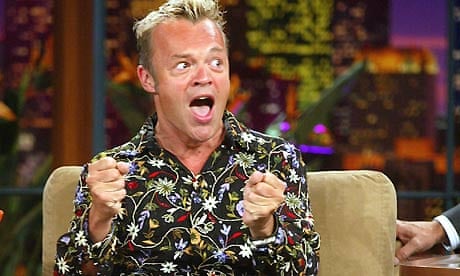The BBC will reject calls to publish the individual salaries of top stars, citing private polling that shows licence-fee payers do not regard it as a priority.
Managers at the corporation are determined to resist pressure from the Conservatives to reveal details of the amounts paid to big names such as Jonathan Ross, Graham Norton and Jeremy Paxman.
A senior executive said that the BBC's own research had found licence-fee payers do not regard the multimillion-pound deals as a huge concern, despite criticism when Ross signed his last £5.6m-a-year agreement in 2006.
He said that when viewers and listeners who said they thought less well of the BBC were asked for a reason, the biggest was repeats. "Repeats are the number one issue even though we have fewer now than for some time," the executive said. The other reasons cited were "quality of content, impartiality, swearing and profanity".
Around 6% of viewers surveyed cited executive pay as a problem. "Talent pay didn't even register," he said.
Last week, the BBC published the exact salaries paid to more than 100 of its most senior executives, along with details of their expenses claims. The figures revealed that 46 of them earn more than the £192,250 paid to the prime minister. The Tory leader, David Cameron, had repeatedly called for the BBC to make executive pay public and promised to ensure that nobody at the corporation is paid more than the prime minister.
After executive salaries were published shadow culture secretary, Jeremy Hunt, said: "They can't stop here. We must see a full breakdown of what the BBC pays their celebrity talent."
In August, the shadow broadcasting minister, Ed Vaizey, commented: "The BBC is publicly funded by licence-fee payers and they have a right to know how that money is being spent. The public is allowed to know what politicians are being paid and should be allowed to know how much senior talent and executives are paid."
A second source at the BBC said that the corporation acknowledged that some viewers are irritated by the amount spent on some "talent" at a time when the economy is struggling. He added that the BBC will publish an overall figure showing how much the corporation spends on talent, which will allow licence-fee payers to track the amount presenters and actors receive annually.
The corporation will disclose in January that it pays a small group of its "top talent" a total of more than £70m a year. The publication will come as part of the BBC's quarterly release of the salaries and expenses of its top 100 executives in the new year.
The source added, however: "We are definitely going to resist all the calls to publish the amounts individual stars are paid."
The BBC believes it will be difficult for the Tories to force it to break the terms of confidential contracts by making them public.
Senior figures also say that other publicly owned organisations, including the Royal Mail and Network Rail, are more likely to be targeted as the Tories seek to name and shame those who receive large salaries from the public purse.
To contact the MediaGuardian news desk email editor@mediatheguardian.com or phone 020 3353 3857. For all other inquiries please call the main Guardian switchboard on 020 3353 2000.
If you are writing a comment for publication, please mark clearly "for publication".
ends

Comments (…)
Sign in or create your Guardian account to join the discussion